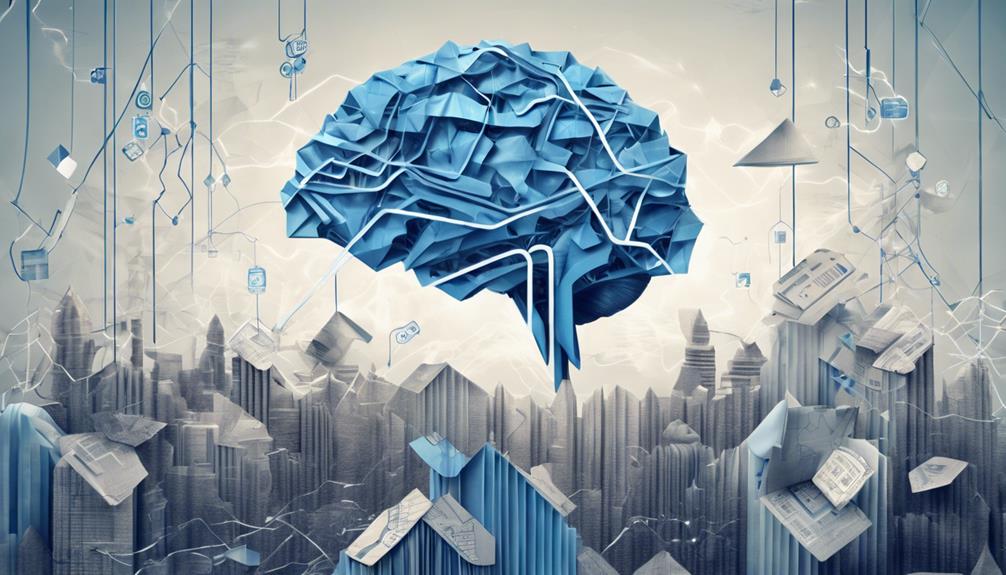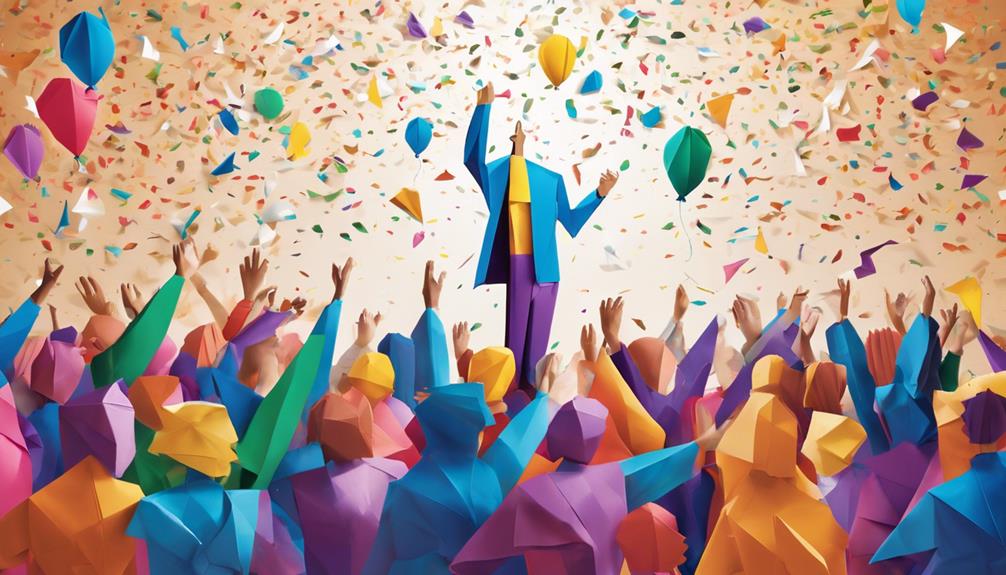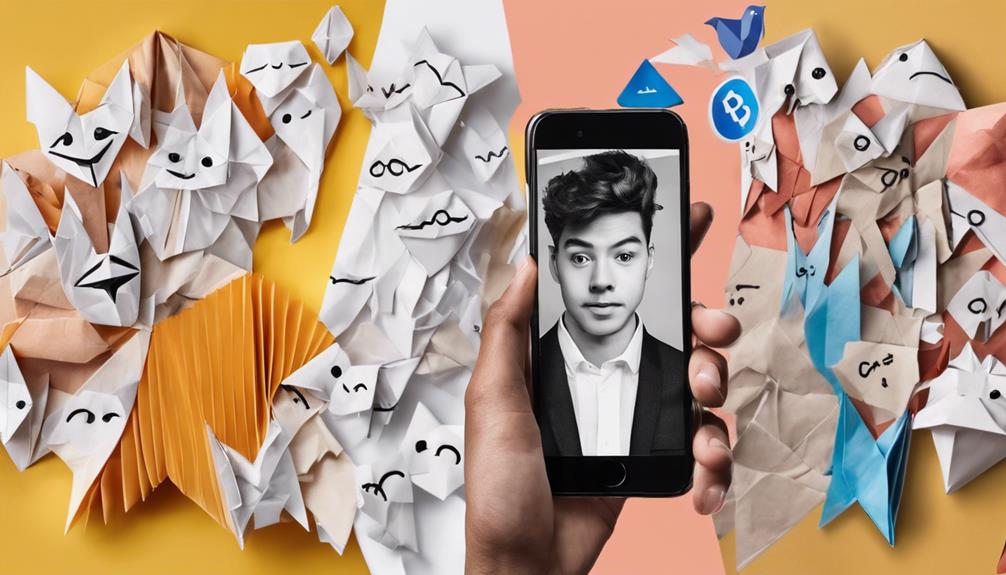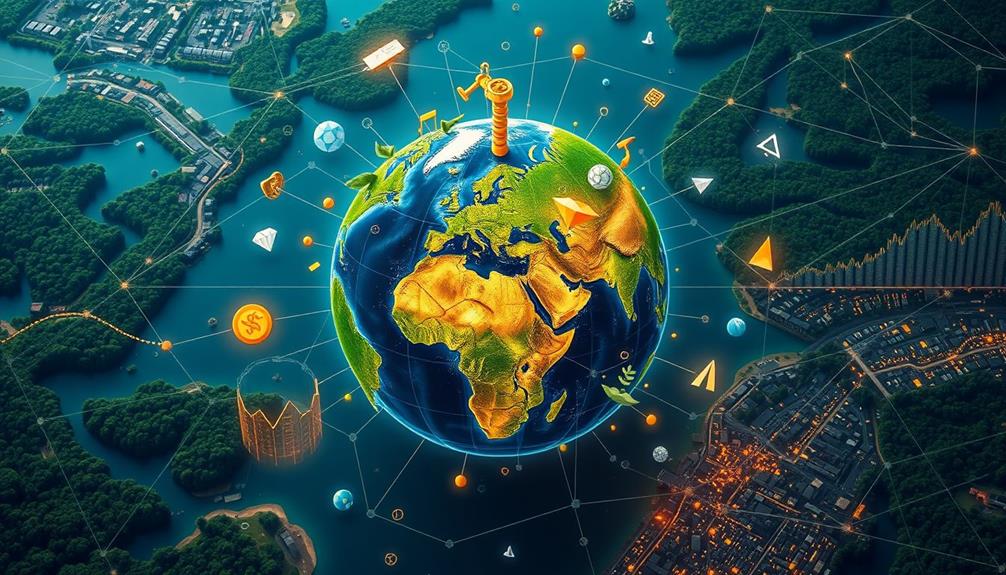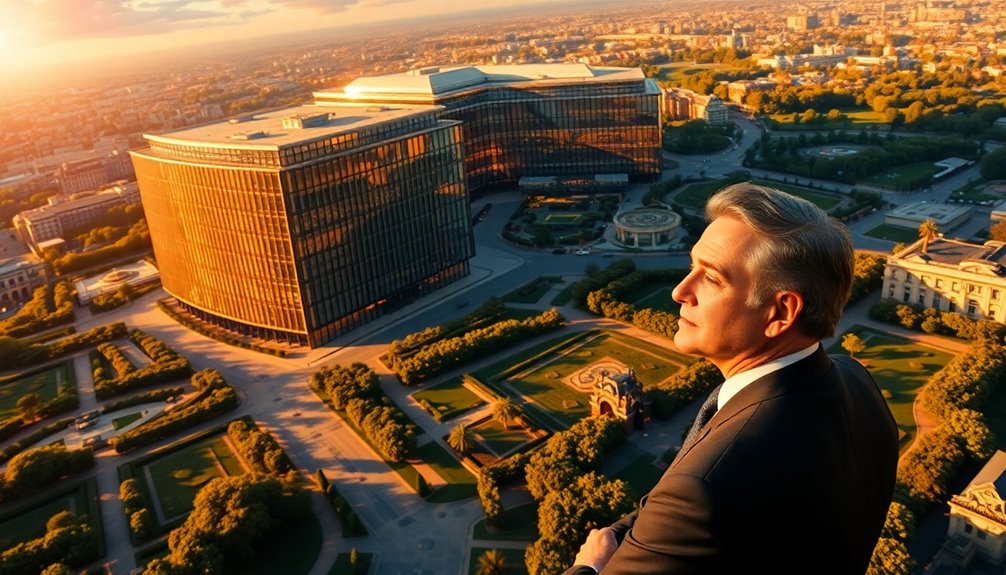As you spend an average of 2 hours and 25 minutes on social media daily, you're unwittingly entangled in a complex web of digital dynamics that can alter your relationships, mental health, and even your sense of self. You're likely experiencing decreased face-to-face interactions, loneliness, and isolation, all while chasing validation through likes and followers. Your self-esteem may be suffering from the constant barrage of curated perfection, and you might be comparing yourself to others, feeling anxious and depressed. But understanding these dynamics is the first step to taking back control – and that's just the beginning.
Key Takeaways
- Social media alters human interaction, leading to decreased face-to-face interactions and increased loneliness and isolation.
- The pursuit of validation through likes and followers creates unrealistic expectations, triggering anxiety and low self-esteem.
- Social media platforms exploit psychological vulnerabilities, using dopamine-driven feedback loops and biased algorithms to perpetuate addictive behaviors.
- Exposure to curated perfection on social media triggers feelings of inadequacy, jealousy, and depression, particularly among teenagers.
- Maintaining a healthy balance between virtual and real-life connections is essential to mitigate the negative impacts of social media on mental and emotional well-being.
Social Media's Grip on Humanity
As you scroll through your social media feeds, you're likely unaware of the subtle yet profound ways in which these platforms are reshaping your relationships, self-perception, and overall humanity.
Social media platforms have become an integral part of our daily lives, but they're also altering the fabric of human interaction. You might think you're staying connected with friends and family, but in reality, you're trading in-person interactions for digital ones. This shift has significant implications, as decreased face-to-face interactions can lead to feelings of loneliness and isolation.
Moreover, the constant pursuit of validation through likes and comments can create unrealistic expectations and promote superficial relationships. It's essential to recognize the grip social media has on our humanity and take steps to maintain a healthy balance between virtual and physical connections.
The Mental Health Conundrum
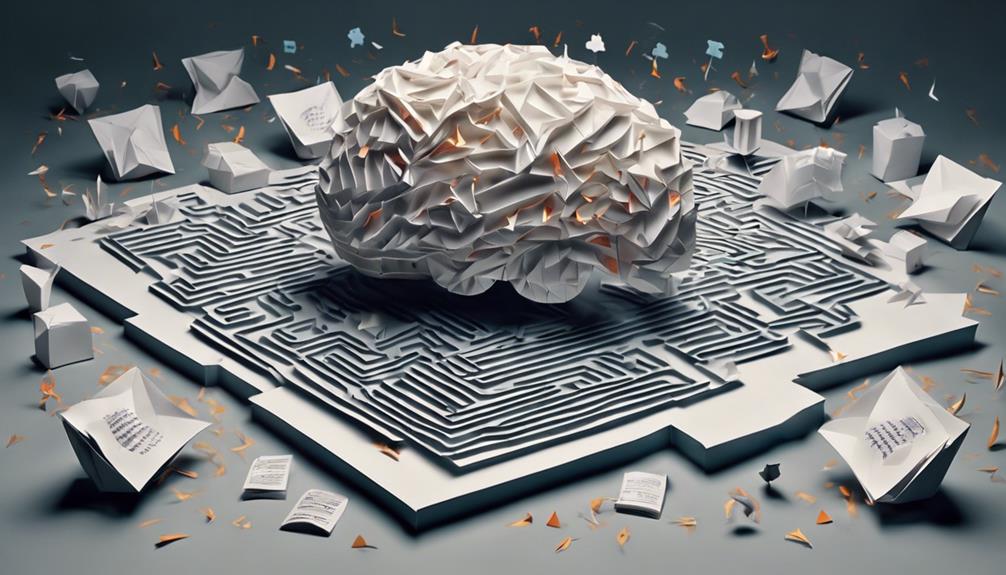
As you explore the impact of social media on your mental well-being, you're likely to confront some unsettling truths.
The constant stream of curated perfection can trigger anxiety, and the threat of cyberbullying can be overwhelming.
It's time to examine the consequences of excessive social media use and consider the benefits of a digital detox to reclaim your mental health.
Anxiety in the Age
Your daily scroll through social media, a seemingly harmless habit, can quietly fuel anxiety, eroding your mental well-being with each fleeting like and carefully curated post.
Spending over 2.5 hours daily on social media can significantly increase your risk of anxiety and depression. You may not realize it, but the relentless pursuit of validation through likes and comments can negatively impact your mental health.
Comparing yourself to others on social media can lead to feelings of jealousy, inadequacy, and depression. Cyberbullying, a prevalent issue on social media, can also significantly affect your mental health and well-being.
Be honest with yourself – do you find yourself constantly checking your notifications, craving validation from strangers? It's essential to recognize the impact of social media on your mental health.
Take control of your social media use, and prioritize your well-being. Remember, your mental health is worth it.
Digital Detox Benefits
By disconnecting from the digital world, you can break free from the anxiety-fueled cycle of social media and access a multitude of benefits for your mental health. Taking a break from social media can greatly reduce stress, anxiety, and depression associated with excessive use. You'll find that disconnecting from technology can improve your sleep quality and overall mental well-being.
Research shows that taking breaks from social media can enhance your focus, creativity, and productivity, allowing you to be more present in your daily life. Engaging in offline activities during a digital detox can strengthen your real-life relationships and social connections, helping you build more meaningful bonds with others.
Cyberbullying Effects
Roughly 13% of teen social media users fall prey to cyberbullying, which can trigger devastating mental health repercussions that you may not even be aware of.
As you navigate social media sites, you're likely to encounter hurtful comments, rumors, or harassment – all forms of cyberbullying that can have a profound impact on your mental well-being.
Victims of cyberbullying often experience increased levels of depression, anxiety, and lower self-esteem. The anonymity and wide reach of social media platforms amplify the impact of cyberbullying on victims, making it imperative to address this issue head-on.
Remember, you're not alone, and there's help available. It's vital to have a support system in place, whether it's a trusted friend, family member, or mental health professional.
Addiction by Design

Social media platforms are carefully crafted to exploit your psychological vulnerabilities, incorporating features like infinite scrolling and notifications that trigger addictive behaviors. You're not alone in this struggle; tech companies employ psychological tactics to keep you engaged, contributing to the addictive nature of social media.
Here are three ways social media platforms design addiction:
- Dopamine-driven feedback loop: The constant stream of likes, comments, and shares triggers a release of dopamine, a neurotransmitter associated with pleasure and reward, making you crave more.
- Infinite scrolling: The endless feed is designed to keep you scrolling, with no clear endpoint, making it difficult to stop.
- Notifications galore: Push notifications, badges, and alerts are designed to grab your attention, making you feel the need to constantly check your phone.
As you continue to use social media, you may experience withdrawal symptoms when attempting to reduce or disconnect, indicating addictive tendencies.
It's essential to recognize these tactics and take control of your social media usage to avoid the negative impacts on your mental health, self-esteem, and overall well-being.
The Dark Side of Algorithms

Understanding the inner workings of the complex algorithms shaping your social media feed is crucial.
These algorithms, crafted to enhance your engagement, frequently give precedence to sensational content that elicits intense emotions, potentially distorting your perception of reality.
Recognizing the inherent biases in these algorithms is vital, as they have the ability to strengthen your current beliefs and produce a warped perspective.
Bias in the Code
When you interact with social media platforms, you're often unaware that algorithms are silently shaping your online experience, perpetuating biases and prejudices that can have far-reaching consequences. These biased algorithms can have devastating effects, from discriminatory outcomes to reinforcing harmful stereotypes.
Here are just a few examples of how biased algorithms can impact your online experience:
- Echo chambers: Social media algorithms can show you content that aligns with your existing beliefs and preferences, limiting your exposure to diverse viewpoints.
- Discriminatory outcomes: Biased algorithms can lead to racial profiling in predictive policing software or favor certain groups in recruitment tools, as seen in Amazon's case.
- Lack of transparency: The opacity of algorithmic decision-making makes it challenging to identify and address biases in digital platforms.
It's important to recognize the potential biases in social media algorithms and their consequences. By understanding these biases, you can take steps to mitigate their impact on your online experience and promote a more inclusive digital environment.
Addiction by Design
Your online habits are being expertly manipulated by algorithms designed to maximize your screen time, trapping you in a vicious cycle of endless scrolling and craving for more.
Social media platforms are engineered to be addictive, using personalized content to keep you hooked. Notifications, infinite scrolling, and recommendations are strategically designed to create a continuous loop of content consumption, contributing to addictive behaviors.
Variable rewards, such as likes, comments, and shares, exploit psychological principles to keep you coming back for more interactions. It's no wonder excessive social media use can lead to addictive behaviors similar to substance abuse, impacting mental health and overall well-being.
You're not alone in this struggle; many users are trapped in this cycle. Recognizing the design behind these addictive platforms is the first step towards taking control of your online habits.
Social Networks Gone Wrong
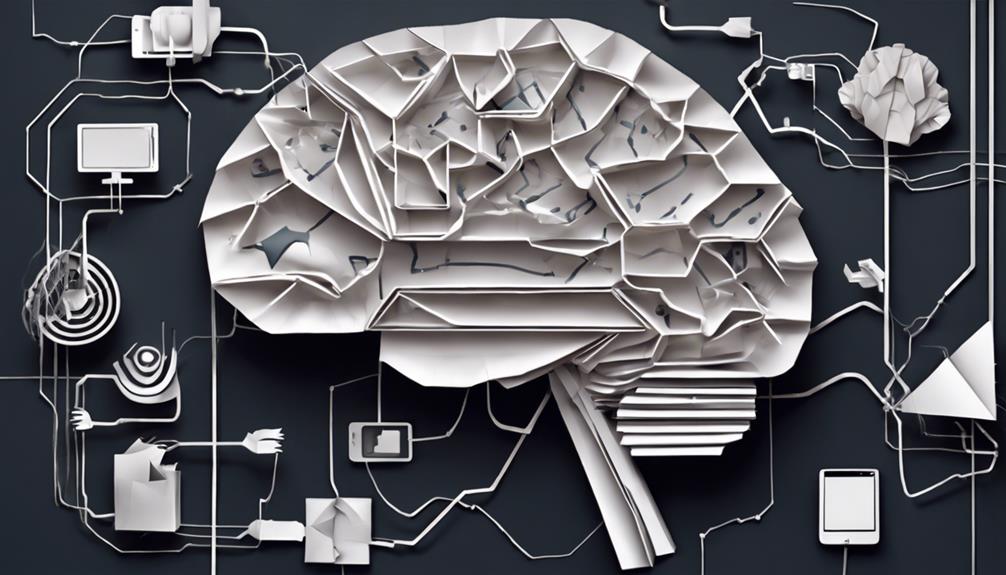
Social media platforms, meant to connect you with others, often have the opposite effect, perpetuating feelings of loneliness and isolation. You may think social media helps you stay connected with friends and family, but in reality, it can lead to negative consequences.
Here are just a few examples of how social media can go wrong:
- Cyberbullying: Around 13% of teen social media users experience bullying, leading to negative psychological impacts.
- Unrealistic expectations: Exposure to perfect relationships and beauty standards on social media can hinder genuine connections and intimacy in real-life relationships.
- Validation obsession: The relentless pursuit of likes and comparisons on social media can contribute to low self-esteem and depression.
These issues can significantly impact your social interactions and overall well-being. It's essential to be aware of these potential pitfalls and take steps to maintain a healthy balance between your online and offline life.
Digital Footprints and Privacy

As you navigate the online world, you leave behind a trail of digital breadcrumbs, known as digital footprints, that can be exploited by companies and cybercriminals alike. These footprints include your browsing history, social media interactions, and online purchases, which can be used to create detailed profiles of your online activities.
This raises significant privacy concerns, as companies can use this data to target you with personalized ads and services. Additionally, data breaches and unauthorized access to your digital footprints can lead to identity theft, financial fraud, and compromised personal information.
To regain control over your online data, it's vital to manage your digital footprints proactively. Adjust your privacy settings, use Virtual Private Networks (VPNs), and be cautious about sharing personal information online.
Rethinking the Online Experience
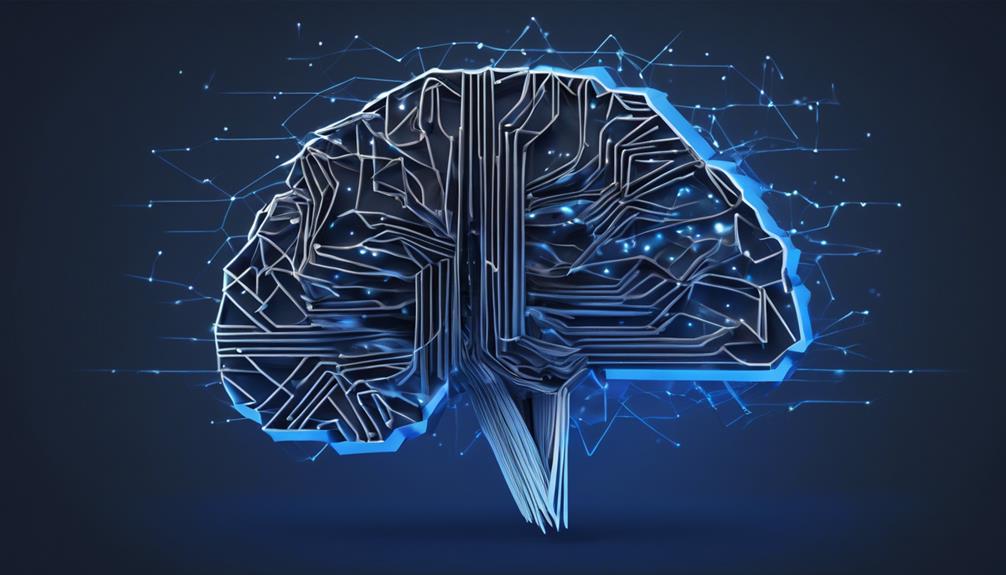
While managing your digital footprints is vital, it's imperative to recognize how social media is reshaping your relationships and interactions, often in ways that can have lasting effects on your mental and emotional well-being.
As you navigate the online world, it's crucial to rethink your online experience to maintain a healthy balance between your virtual and real-life connections.
Here are three key reasons to reassess your social media habits:
- Social isolation: Social media use has been linked to increased feelings of loneliness and decreased in-person social interactions among teens.
- Toxic interactions: Cyberbullying affects around 13% of teen social media users, highlighting the negative impact of online interactions.
- Unrealistic expectations: Exposure to unrealistic relationship expectations on social media can hinder genuine connections and intimacy.
Frequently Asked Questions
What Is the Impact of Digital Media on Social Dynamics?
As you navigate online platforms, you're likely aware that digital media is reshaping social dynamics, influencing how you interact, form relationships, and communicate, raising concerns about intimacy, authenticity, and overall well-being.
How Social Media Has Impacted Humans?
As you scroll through your feeds, a sea of curated perfection stares back, making you feel like you're drowning in a vortex of inadequacy. You're not alone – social media has warped your self-perception, fostering loneliness and low self-esteem.
What Is the Impact of Social Media on Human Behavior?
You find that social media greatly influences your behavior, altering your self-perception through comparisons, fueling jealousy and inadequacy, and encouraging excessive screen time, ultimately affecting your mental health and relationships.
What Is the Impact of Social Media on Our Lives?
You're probably spending around 2 hours daily on social media, which is like devouring a whole pizza by yourself – it's a huge chunk of your life! As you scroll, you're sacrificing in-person connections, risking cyberbullying, and trading intimacy for likes.
How Can Social Media Influence Public Speaking and Inspirational Messages?
Social media has the power to amplify the messages of top public speakers for change. Through platforms like Twitter and Instagram, these speakers can reach a wider audience and inspire positive action. Their powerful messages can spread rapidly, sparking important conversations and driving real social change.
Conclusion
As you navigate the digital landscape, remember that social media's grip on humanity is a tangled web of consequences. Like a mirage, it promises connection, but often delivers isolation.
By acknowledging the pitfalls, you can reclaim your agency, curate a healthier online presence, and break free from the algorithms' grasp.
It's time to rewrite the narrative, to redefine the online experience, and to forge a path that prioritizes well-being over likes and shares.
Will you take the first step towards a more mindful, more human, digital future?

